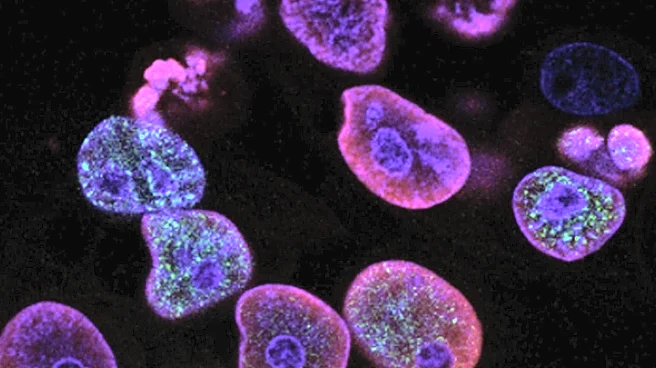What's Happening?
A recent study has found that cell-free chromatin particles (cfChPs) can induce double-stranded DNA breaks that selectively target telomeres, potentially contributing to aging and cancer. The research, conducted on NIH3T3 embryonic mouse fibroblast cells,
compared the effects of cfChPs with gamma rays, a known DNA-damaging agent. The study revealed that cfChPs from both healthy individuals and cancer patients caused significant telomere damage, unlike gamma rays. This telomere-specific damage could lead to genomic instability, a hallmark of aging and cancer.
Why It's Important?
The findings suggest that cfChPs, which are released from dying cells, may play a significant role in the natural aging process and the development of age-related diseases and cancer. Understanding the mechanism by which cfChPs induce telomere damage could lead to new therapeutic strategies to combat these conditions. The study highlights the potential for cfChPs to be natural DNA-damaging agents, which could shift the focus of research and treatment strategies in aging and oncology. This could have profound implications for public health, as it opens new avenues for preventing or mitigating the effects of aging and cancer.
Beyond the Headlines
The study raises ethical and scientific questions about the role of naturally occurring biological processes in disease development. It challenges the current understanding of DNA damage and repair mechanisms, suggesting that endogenous factors like cfChPs could be as significant as external agents like radiation. This could lead to a reevaluation of how aging and cancer are studied and treated, potentially influencing future research funding and policy decisions.
















